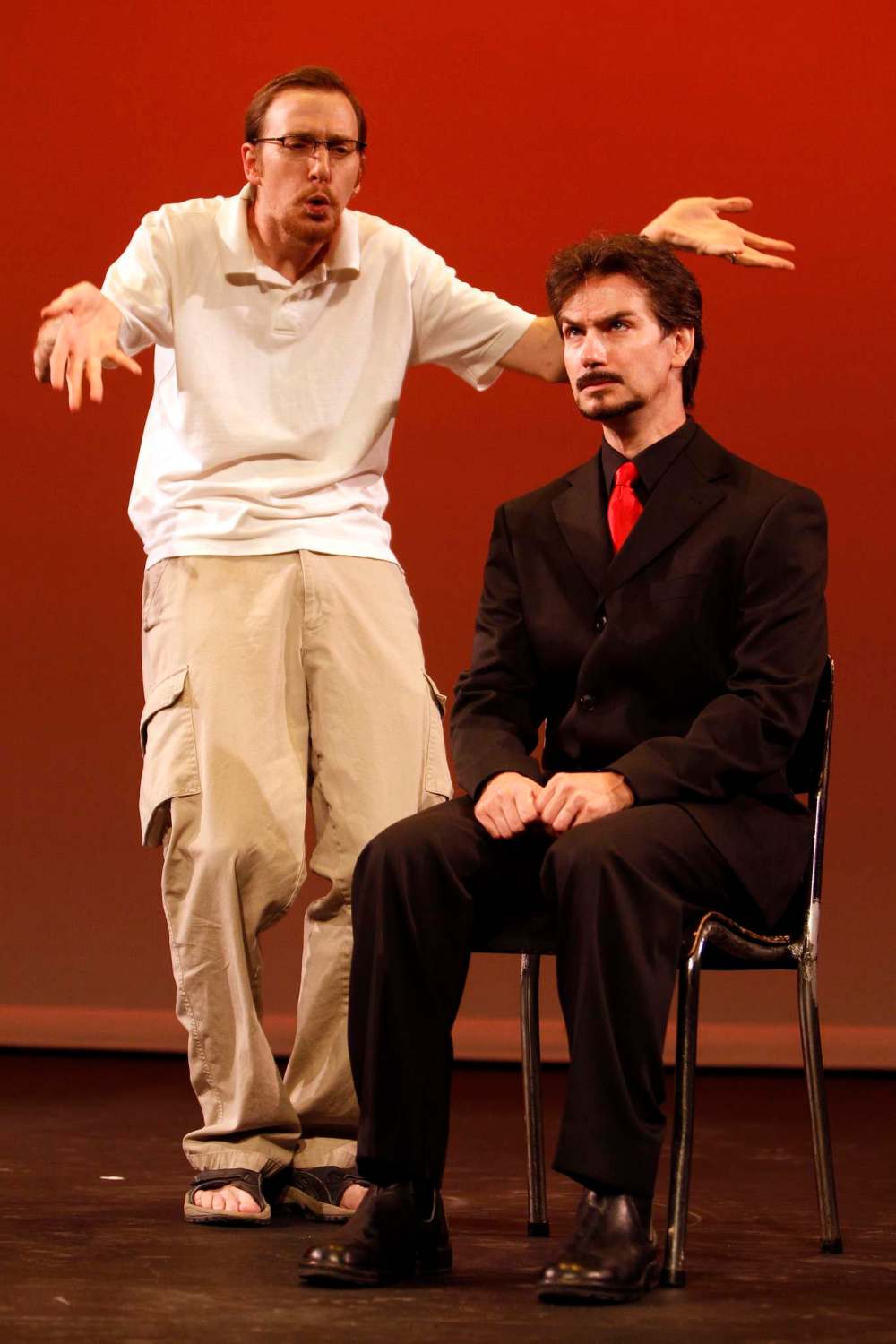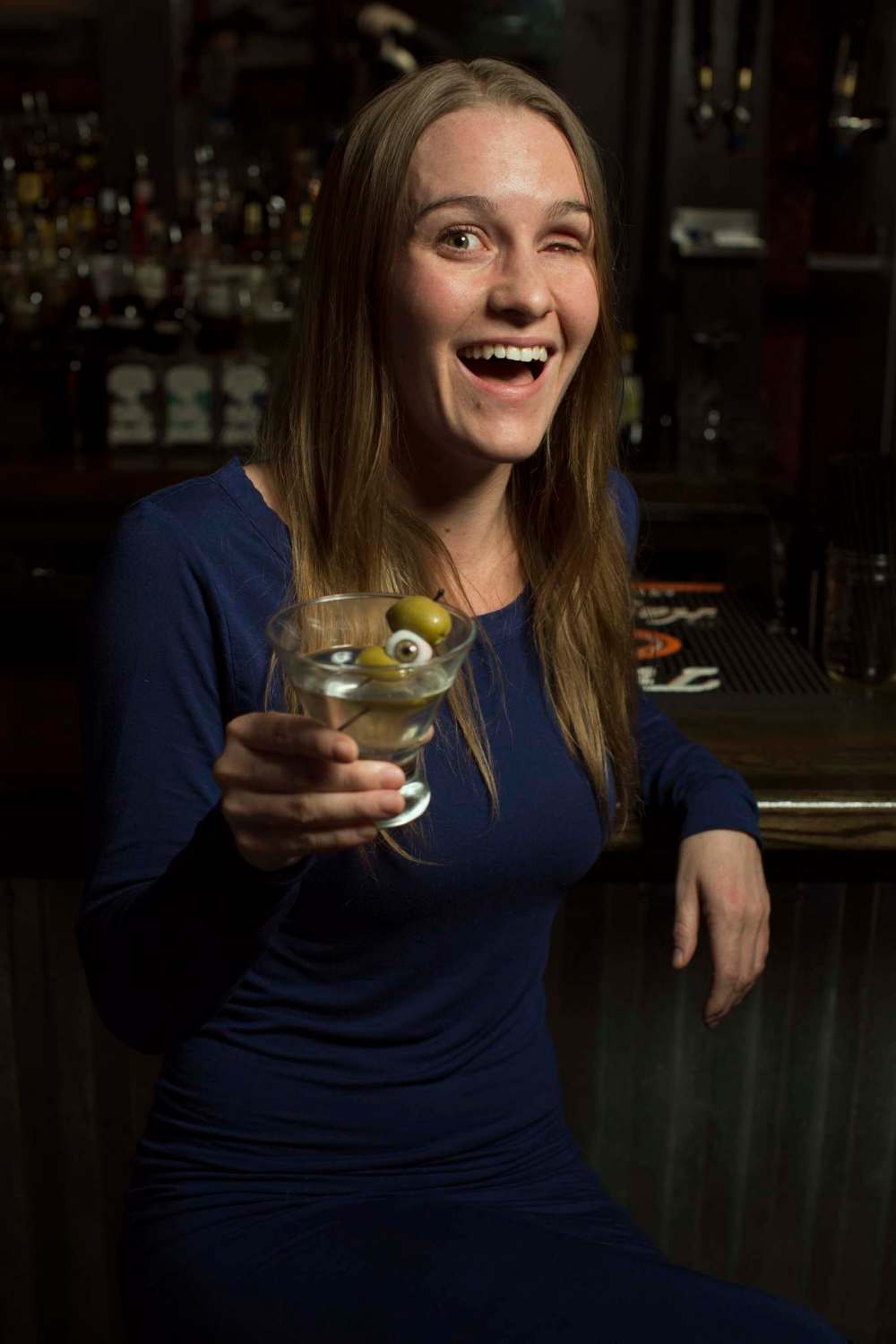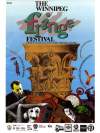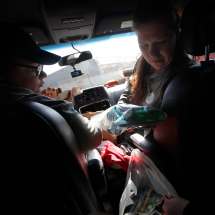Putting a spotlight on disabilities Actors let personal health experiences, physical differences take centre stage at Fringe Festival
Read this article for free:
or
Already have an account? Log in here »
To continue reading, please subscribe:
Monthly Digital Subscription
$19 $0 for the first 4 weeks*
- Enjoy unlimited reading on winnipegfreepress.com
- Read the E-Edition, our digital replica newspaper
- Access News Break, our award-winning app
- Play interactive puzzles
*No charge for 4 weeks then billed as $19 every four weeks (new subscribers and qualified returning subscribers only). Cancel anytime.
Read unlimited articles for free today:
or
Already have an account? Log in here »
Hey there, time traveller!
This article was published 18/07/2019 (1743 days ago), so information in it may no longer be current.
In 2016, Mitch Krohn survived a stroke during a spinal surgery.
That same year, Dianna Rasing also survived a stroke while doing laps at Pan Am Pool.
#disabilitywpgfringe
Click for details on showtimes, to read a description of the show and the Free Press review, and to submit your star rating.
Strokes of Genius, Venue 23, One88
My Frozen Heart: A Comic Tragedy, Venue 23, One88
Anna and the Substitute Teacher, Venue 3, Alto-Portage Place
Quirky, Venue 24, Platform Centre
Eye Candy, Venue 21, MTYP – Mainstage
Heart of Stone, Venue 28, Forth Projects
The ADHD Project, Venue 7, Cinematheque
So, Do You Want to Talk about It?, Venue 8, Rachel Browne Theatre
(Art)ist, Venue 2, MTC Up the Alley
Monica vs. the Internet, Venue 11, Centennial Concert Hall
LUB DUB, Venue 9, School of Contemporary Dancers
Tickling the Dragon’s Tail, Venue 9, School of Contemporary Dancers
Trendsettlers: Episode IV, Venue 5, Son of Warehouse
Estee Polnau, Kids Fringe
Through mutual friends, the pair connected.
“We chatted out our frustrations and stroke recovery,” says Krohn, who is no stranger to Winnipeg stages.
“Next thing we knew, we were like, ‘Let’s start writing sketch comedy about the health care system and stroke recovery and rehab.’ It became a therapeutic tool.”
And now, Strokes of Genius (Venue 23) is a sketch comedy show at the Winnipeg Fringe Theatre Festival — one of a whole crop of works featuring artists with disabilities. There are so many shows, in fact, that fellow stroke survivor Hannah Foulger, who also has a show in this year’s festival, decided to promote them under the banner #disabilitywpgfringe.
“It just seems like there were so many of us doing shows that I felt like we needed to celebrate that,” she says.
Foulger survived her stroke nine years ago, when she was 20. Meeting and finding a mentor in Debbie Patterson — the venerated local playwright/actor/director who lives with multiple sclerosis and has become a driving force in disability theatre with her company, Sick + Twisted — helped Foulger find not only her voice as an artist with a disability, but a community of like-minded people creating powerful work.

“She’s been a key person for me,” Foulger says. “The more I’ve developed my writing style, the more I’ve realized it’s a key part of who I am and it makes my writing interesting and specific.”
Foulger believes artists with disabilities are able to offer unique perspectives on the world around us, on our mortality, and the limits of our bodies.
“I think those restraints actually make us more creative,” she says.
In Krohn’s case, living with a disability has altered his approach to comedy.

“I’m with the Crosseyed Rascals as well, and I used to be the Dick Van Dyke slapstick physical comedy guy. Now, I have to rely totally on my wit and character,” he says.
Foulger’s tragicomedy My Frozen Heart (Venue 23) — which is about a “female filmmaker set on making the perfect, definitely-not-autobiographical film about a teen whose mother is living with a disability” — will feature a relaxed performance on July 21 for audience members who may be sensitive to light, sound and movement.
“That’s something I’m still learning,” says Krohn, who is producing Foulger’s show. “My disability has allowed me to open my eyes to other disabilities and further needs for accessibility.”
Comedian Adam Schwartz (Aspergers: A Tale of a Social Misfit) has teamed up with Gemini-nominated comedy writer Aimée Beaudoin for the family-friendly comedy Anna and the Substitue Teacher (Venue 3), one of two plays at about autism at this year’s Fringe. The other is Aiden Zeglinski’s coming-of-age one-man show, Quirky (Venue 24).
Anna is a young girl with autism who must save the day when her favourite teacher is replaced by an evil substitute.
“Growing up on the autism spectrum, I was often in denial about having autism and it made for lots and lots of sadness,” Schwartz says.
“I always wanted to have a strong character who was OK with their autism to show that being different is a good thing, and have them be strong in a way I wasn’t. I wanted to have a female character because autism is often portrayed as a male thing. Anyone can be autistic and autism can be a beautiful thing, even though being different can sometimes be hard.”

The ADHD Project (Venue 7), a storytelling show written and performed by Hamilton’s Carlyn Rhamey, is also about a little girl who ultimately embraces neurodiversity as a superpower— except, in this case, that little girl is her.
Rhamey was diagnosed with ADHD at 7.
“ADHD is not as invisible a disability as we’d maybe like it to be: kids could always tell,” she says.
It’s still part of her life; a common misconception is that ADHD only affects kids.
“I think our stories have a special way of being unique but also very relatable, because the struggles we go through are very universal.”– Carlyn Rhamey, writer and performer of The ADHD Project
“Now, as a grown-up, if I’m late or disorganized or struggling in a way that a neurotypical wouldn’t struggle, I do need to be open about it to get accommodation for it.”
Being open also allows for interesting theatre.
“I think our stories have a special way of being unique but also very relatable, because the struggles we go through are very universal,” Rhamey says.
Vancouver’s Stéphanie Morin-Robert (Blindside, The Merkin Sisters) returns to fringe this year with a new comedy, Eye Candy (Venue 21), which is about her first pregnancy and 56-hour labour with her 16-month-old daughter, Olive, with whom she’ll share the stage.

Morin-Robert lost her left eye to cancer when she was two years old, something she tackled head-on with Blindside. Eye Candy is something of a sequel: after all, pregnancy, labour and becoming a mother are also experiences that change mind and body in both visible and invisible ways.
“For me, (losing an eye) was not a visible disability in that it’s obvious, but a sight visibility and having to come to terms with that,” she says. “While it’s something that doesn’t really stop me from doing a lot, but it has resulted in things such as social anxiety.
“Now doing a show about becoming a mother and how that affects me and echoes that experience, I’m realizing all these things that do come up. My show is about breaking boundaries and talking about things openly. Something that’s new for me is my awareness of post-partum depression, and that being a whole other world and realm I’m navigating and learning about.”
Fringe is the perfect place to open a dialogue about our shared experiences, she says.
“The opportunity to connect with other artists and audience members who can relate, and giving them the courage to open up and share, is quite healing.”
jen.zoratti@freepress.mb.ca
Twitter: @JenZoratti
Fringe Reviews
The Winnipeg Free Press will offer up fresh reviews of every single show at this year’s Winnipeg Fringe Festival.
Even better, the reviews will be available for free on our website at wfp.to/fringereviews. All 178 reviews will be posted by Sunday evening, and we will publish as many reviews as we can on our print pages.

Jen Zoratti
Columnist
Jen Zoratti is a Winnipeg Free Press columnist and author of the newsletter, NEXT, a weekly look towards a post-pandemic future.




















